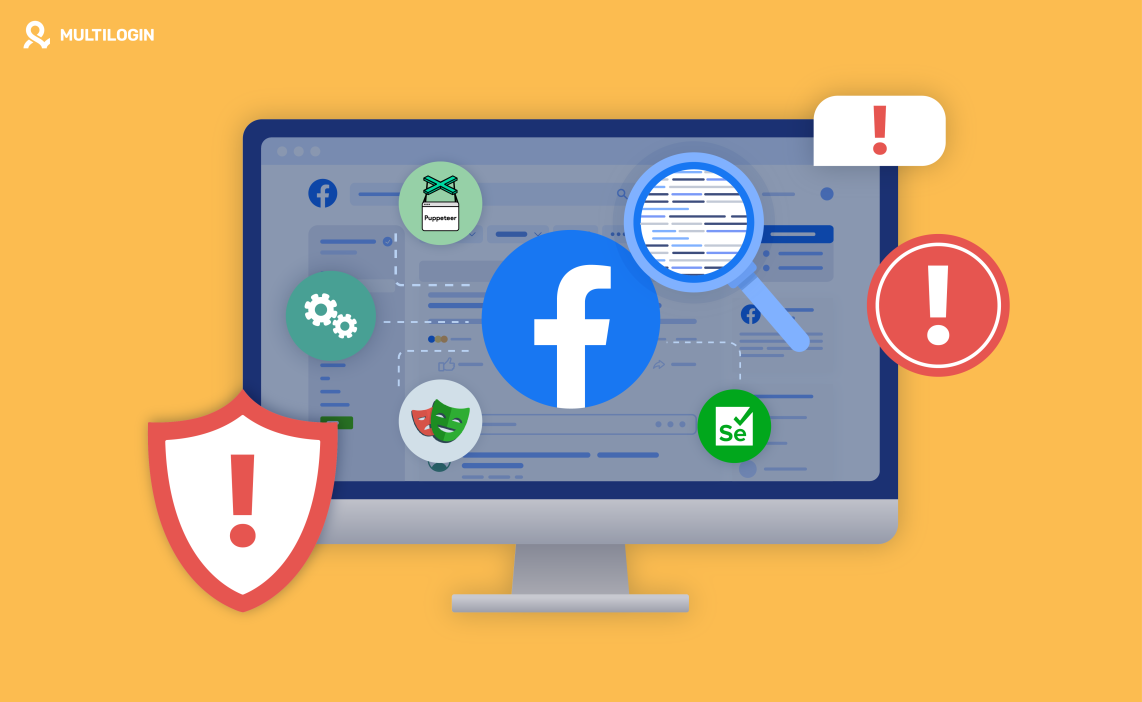With over 2.8 billion active users, Facebook is a treasure trove of data. But extracting that data—known as Facebook scraping—comes with significant challenges.
While it might seem like a goldmine for insights, business trends, or understanding user behavior, scraping Facebook isn’t as simple or risk-free as it may appear. Before diving into this practice, it’s essential to understand the rules, risks, and methods involved.
What is Facebook Scraping?
Facebook scraping refers to the process of extracting data from Facebook’s platform, such as user profiles, posts, comments, or events, typically through automated tools like bots or scripts. This data can be utilized for various purposes, from market research to targeted advertising. However, the practice carries significant legal and ethical considerations.
Does Facebook Allow Scraping?
The short answer is no. Facebook’s terms of service explicitly prohibit scraping. The platform enforces strict rules against the unauthorized collection of data, and violating these rules can lead to account suspension, legal action, or other penalties.
Facebook’s anti-scraping policy is designed to protect user privacy and maintain the integrity of the platform. They actively monitor and take down accounts that engage in scraping activities.
Is Facebook Scraping Legal?
The legality of scraping Facebook depends on several factors, including how you scrape, what data you collect, and where you are located. In many jurisdictions, scraping public data isn’t illegal per se, but Facebook’s terms of service take precedence over local laws when using their platform.
Violating these terms can result in legal consequences, even if the scraping itself isn’t illegal under local laws.
Methods of Scraping Facebook
If you’re still interested in scraping Facebook (while keeping in mind the risks), here are some common methods:
Web Scraping Tools
There are various Facebook scraping tools and libraries, like Beautiful Soup and Scrapy, that can be used for scraping Facebook using Python. However, these tools can be detected by Facebook, leading to your account being blocked or banned.
Facebook API
For those looking to gather data legally, Facebook offers an API that allows access to certain types of data. While limited compared to scraping, it’s the safest route to avoid penalties and ensure compliance with Facebook’s rules.
Browser Automation
Tools like Selenium can automate browsing and simulate user actions to gather data. However, this method can also be flagged by Facebook as suspicious activity. Moreover, Facebook’s algorithms are getting smarter in detecting such automated actions.
How to Scrape Facebook Without Getting Banned
Just like Facebook shadow banning, you can also get banned for scraping data on Facebook. However, to minimize the risks of getting banned while scraping Facebook, consider using an antidetect browser like Multilogin.
What is an Antidetect Browser?
An antidetect browser is designed to mask your digital identity by mimicking different user profiles, allowing you to manage multiple accounts without getting detected. Multilogin, for example, provides a robust solution for marketers and data analysts who need to access data across multiple Facebook accounts without triggering red flags.
How Multilogin Helps
Unique Digital Fingerprints: Each browser session in Multilogin has its own digital fingerprint, which makes it look like different users are accessing the platform. This reduces the likelihood of Facebook linking multiple scraping activities to a single user.
Browser Profiles: With Multilogin, you can create multiple browser profiles that simulate real user behaviors, helping you avoid detection while scraping data.
IP Rotation: Integrating proxies with Multilogin allows you to rotate IP addresses, adding another layer of protection. This ensures that your scraping activities are spread across different IPs, making it harder for Facebook to detect and block them.
Using Multilogin can significantly reduce the chances of being banned while performing scraping activities, although it’s crucial to understand that no method is entirely risk-free.
Scraping Facebook Groups, Pages, and Events
Many people are interested in scraping specific elements of Facebook, such as groups, pages, or events. Here’s what you need to know:
Scraping Facebook Groups
This involves extracting data from group posts, members, or discussions. It’s particularly tricky because many groups are private, and scraping these can result in more severe penalties from Facebook.
Scraping Facebook Pages
Public pages are often targeted for scraping to analyze posts, comments, and likes. While this might seem harmless, it still violates Facebook’s terms of service.
Scraping Facebook Events
Extracting data from Facebook events, such as attendee lists or event details, is another common practice. However, like other forms of scraping, it’s not allowed and can lead to account suspension.
Why You Should Think Twice Before Scraping Facebook
While the idea of scraping Facebook for data can be tempting, there are several reasons to reconsider:
Legal Risks
Scraping Facebook can lead to serious legal issues, including lawsuits. Facebook has a history of taking legal action against companies and individuals who scrape their platform.
Account Suspension
If Facebook detects scraping, your account could be permanently banned, leading to the loss of access to personal and business pages. This could have significant consequences, especially for businesses that rely on Facebook for marketing and customer engagement.
Ethical Concerns
Collecting data without users’ consent raises significant privacy concerns. Even if the data is public, using it without permission can damage your reputation and lead to potential backlash.
Alternatives to Scraping Facebook
If you need data from Facebook but want to avoid the risks associated with scraping, consider these alternatives:
Facebook API
While limited, the Facebook API provides a legal way to access certain types of data. It’s ideal for developers who need to integrate Facebook data into their applications while staying within Facebook’s guidelines.
Market Research Tools
There are tools available that aggregate data from social media platforms legally and ethically, providing insights without the need for scraping. These tools can be a valuable resource for businesses looking to understand trends and user behavior.
Manual Data Collection
While time-consuming, manually collecting data from Facebook can help you avoid automated detection and the risks of scraping. This method is slower but much safer if you need specific data points.
FAQs
Does Facebook Allow Scraping?
Scraping, or extracting data from Facebook, is generally against their terms of service. It can lead to your account being banned if you’re caught.
How Do I Scrape a Facebook Account?
While tools exist, scraping Facebook accounts can violate the platform’s policies and may result in your account being restricted or banned.
What Does Scrape Mean on Facebook?
Scraping refers to the process of extracting data from Facebook without using their official API. It’s usually done by bots or automated tools.
Is Web Scraping Ever Illegal?
Yes, web scraping can be illegal, especially if it violates a website’s terms of service or involves accessing private information without permission.
Can You Get Banned for Scraping?
Absolutely. Facebook takes scraping very seriously, and if they detect it, your account could be permanently banned.
How Do I Scrape Facebook Without Being Blocked?
The safest way to avoid being blocked is not to scrape at all. If you need data, consider using Facebook’s official API, which is designed to allow access to certain data legally.
How to Scrape Data from Facebook for Free?
Again, scraping data without permission can lead to a ban. It’s best to use Facebook’s API or other legal tools designed for data extraction.
How Do Facebook Accounts Get Hacked?
Facebook accounts can be hacked through phishing, weak passwords, or clicking on malicious links. Always enable two-factor authentication and use strong passwords.
How to Extract Facebook Data?
To extract data legally, use Facebook’s official tools, such as their API or the Download Your Information feature in settings.
What About Scraping Facebook Events?
Scraping events is also against Facebook’s policies and carries the same risks as other types of scraping.
Final Thoughts
Scraping Facebook might seem like a quick way to gather valuable data, but the risks far outweigh the benefits. From legal repercussions to account bans, it’s a practice that can cause more harm than good. If you need data from Facebook, explore legal alternatives like the Facebook API or dedicated market research tools.
For those who must scrape data and wish to minimize risks, using an antidetect browser like Multilogin can help you stay under the radar. However, always remember to weigh the risks carefully and prioritize ethical practices in data collection.



